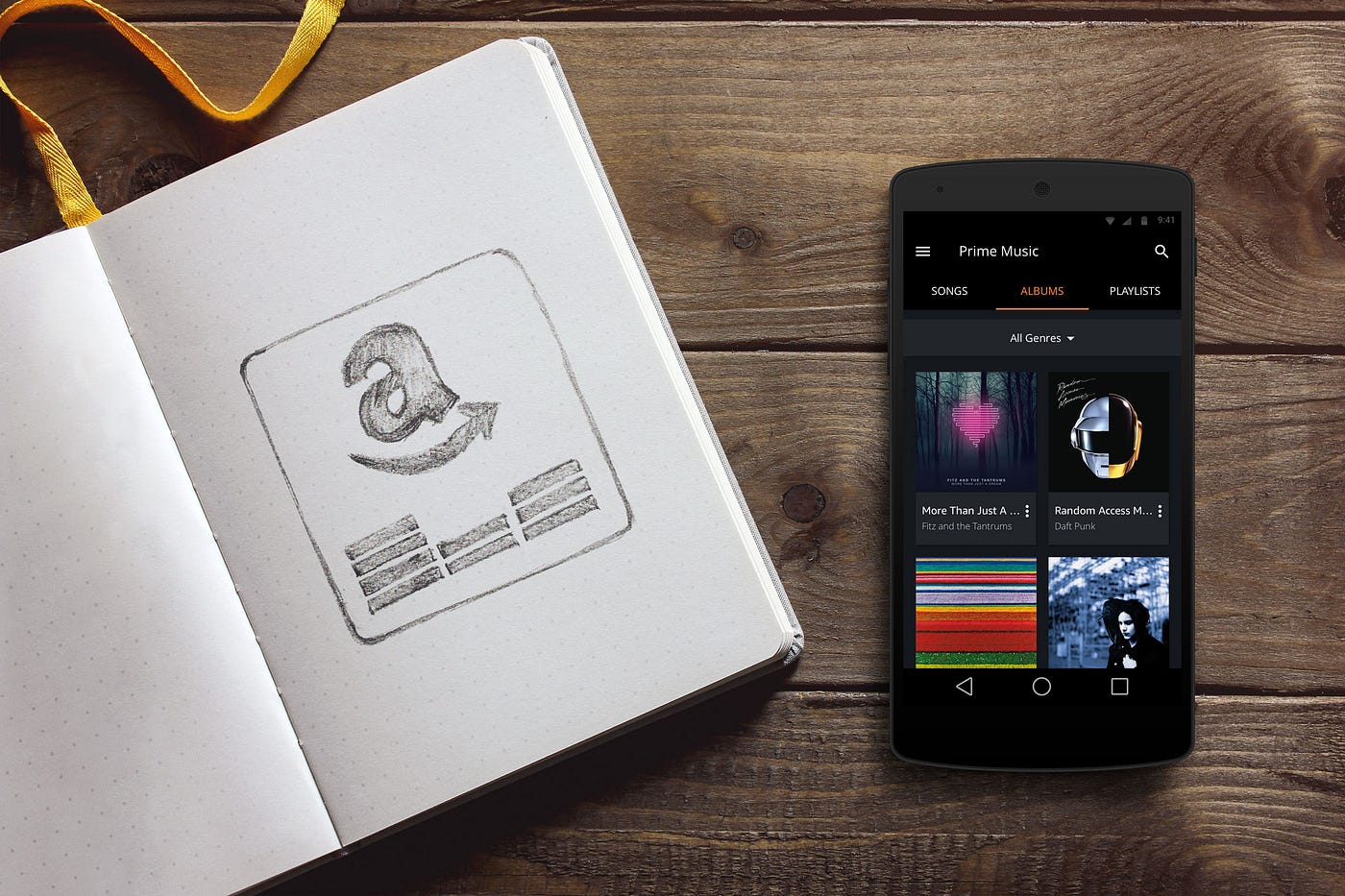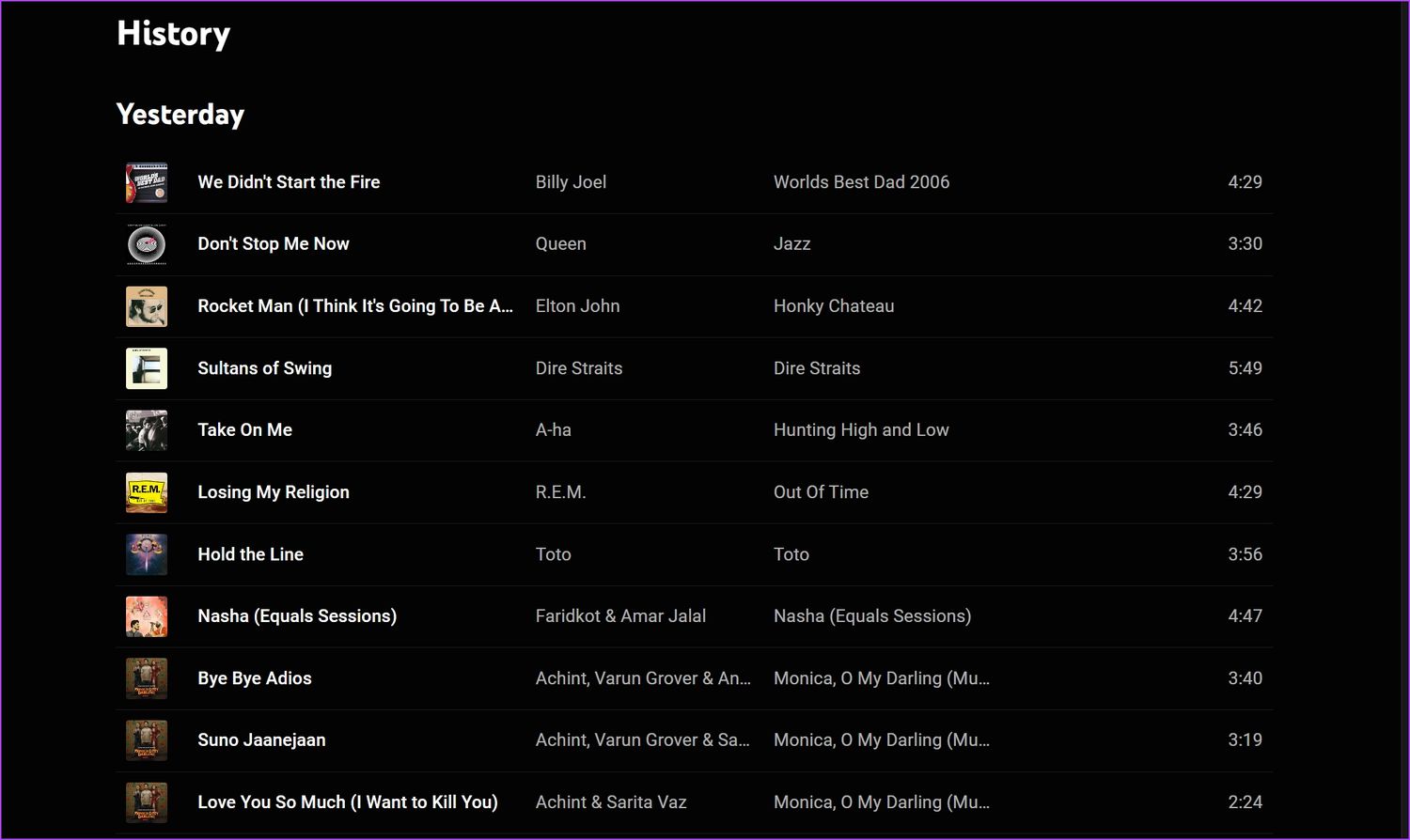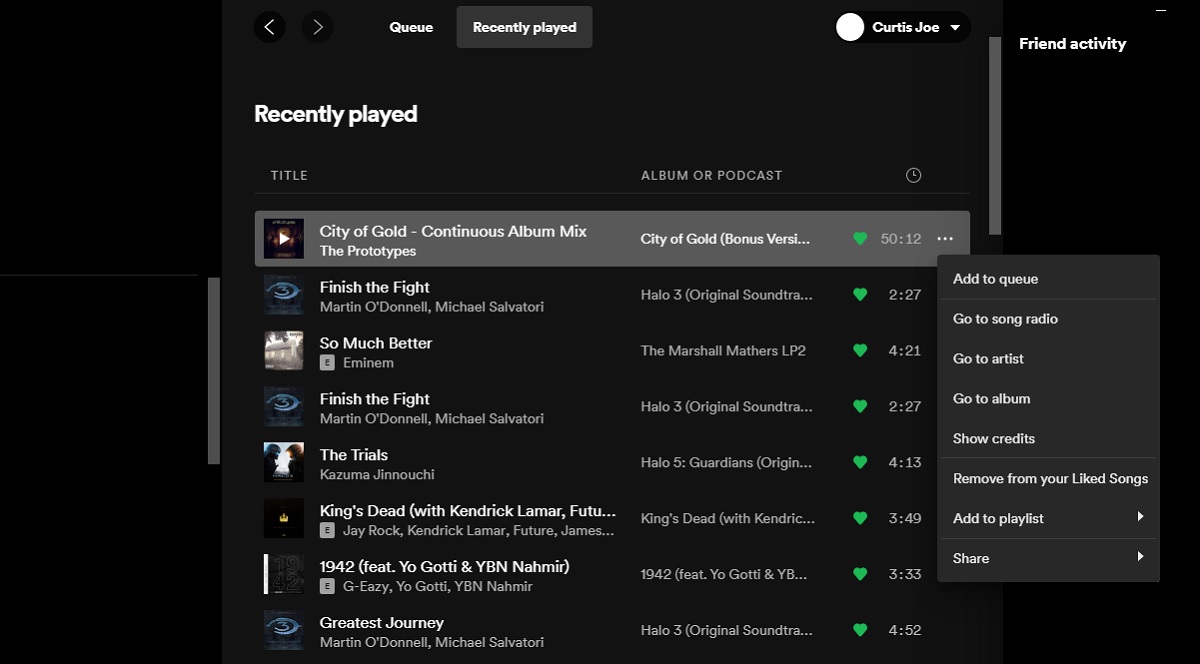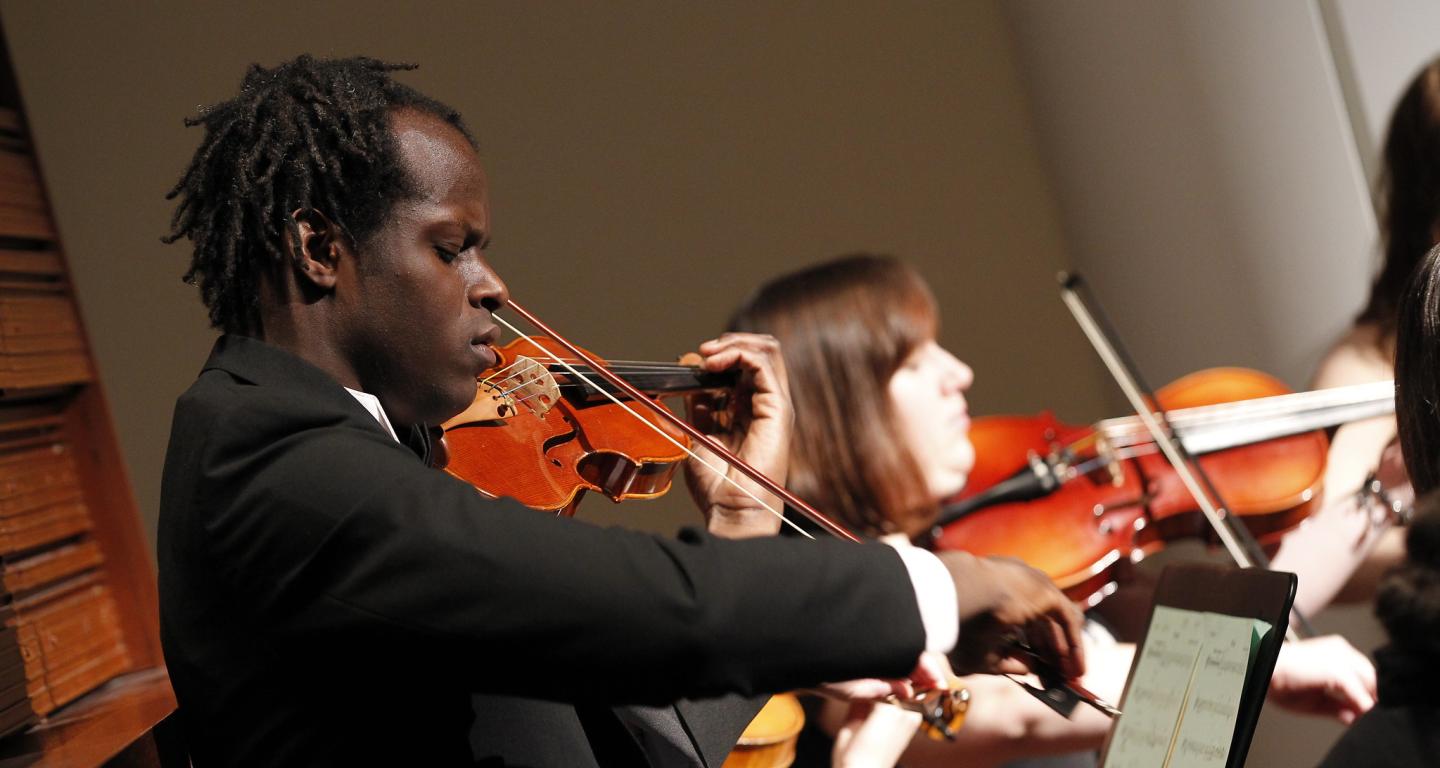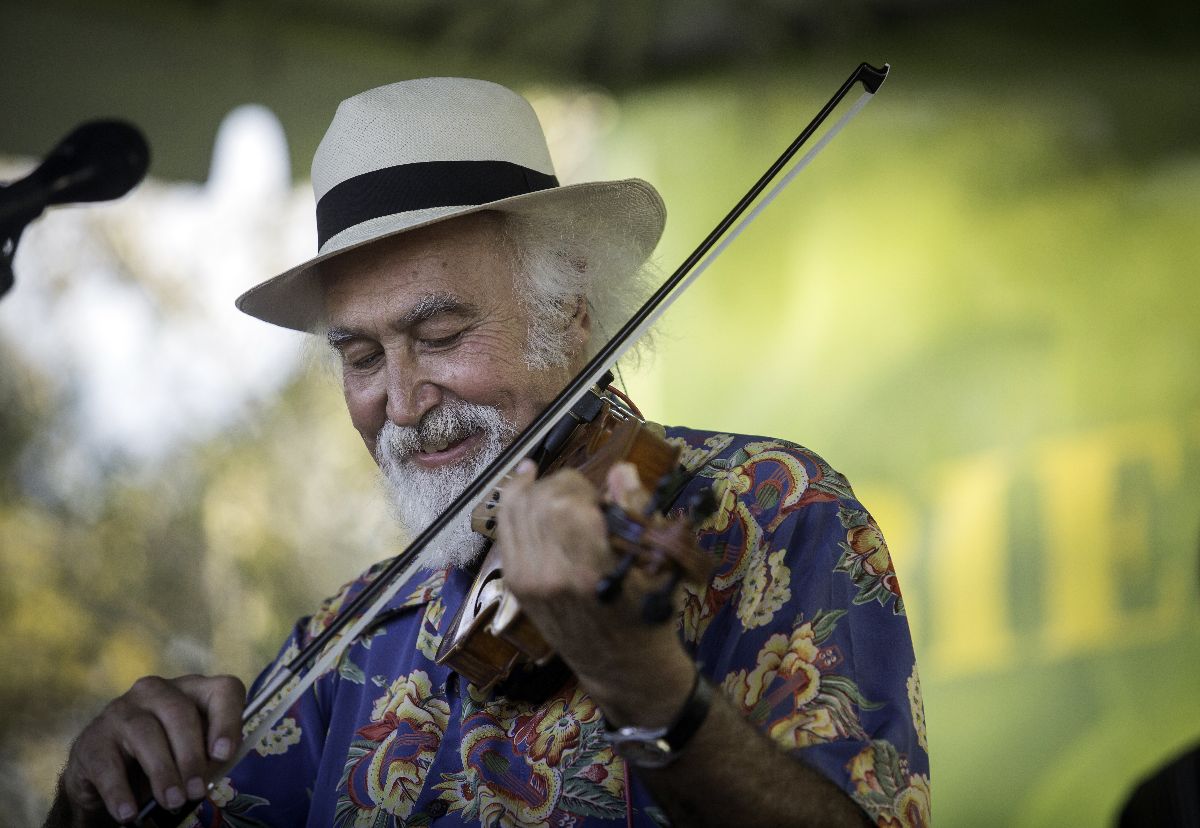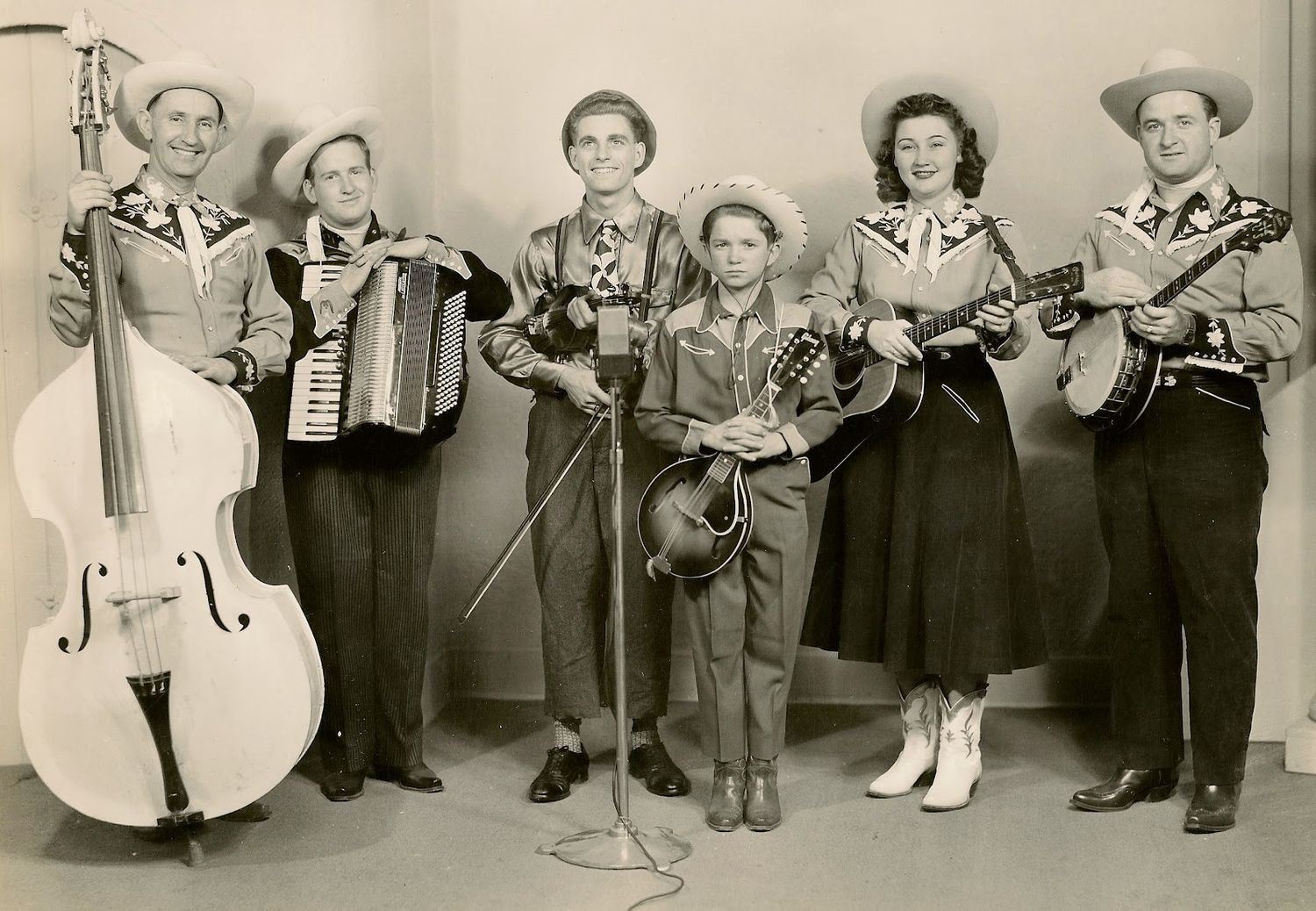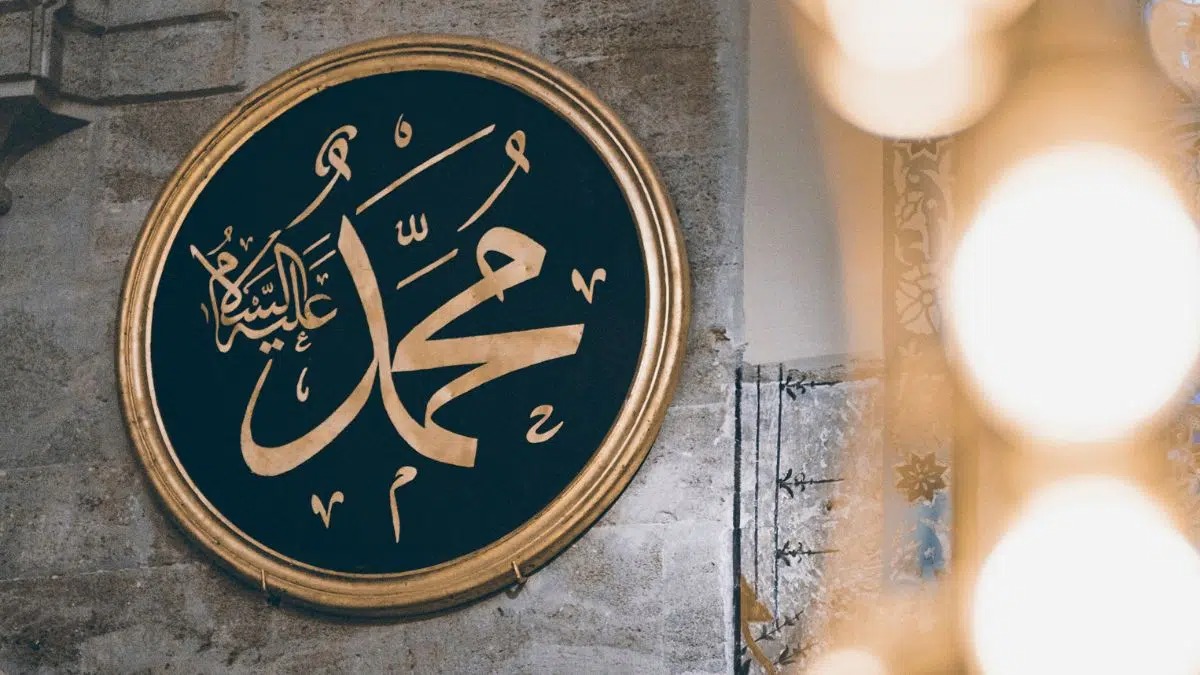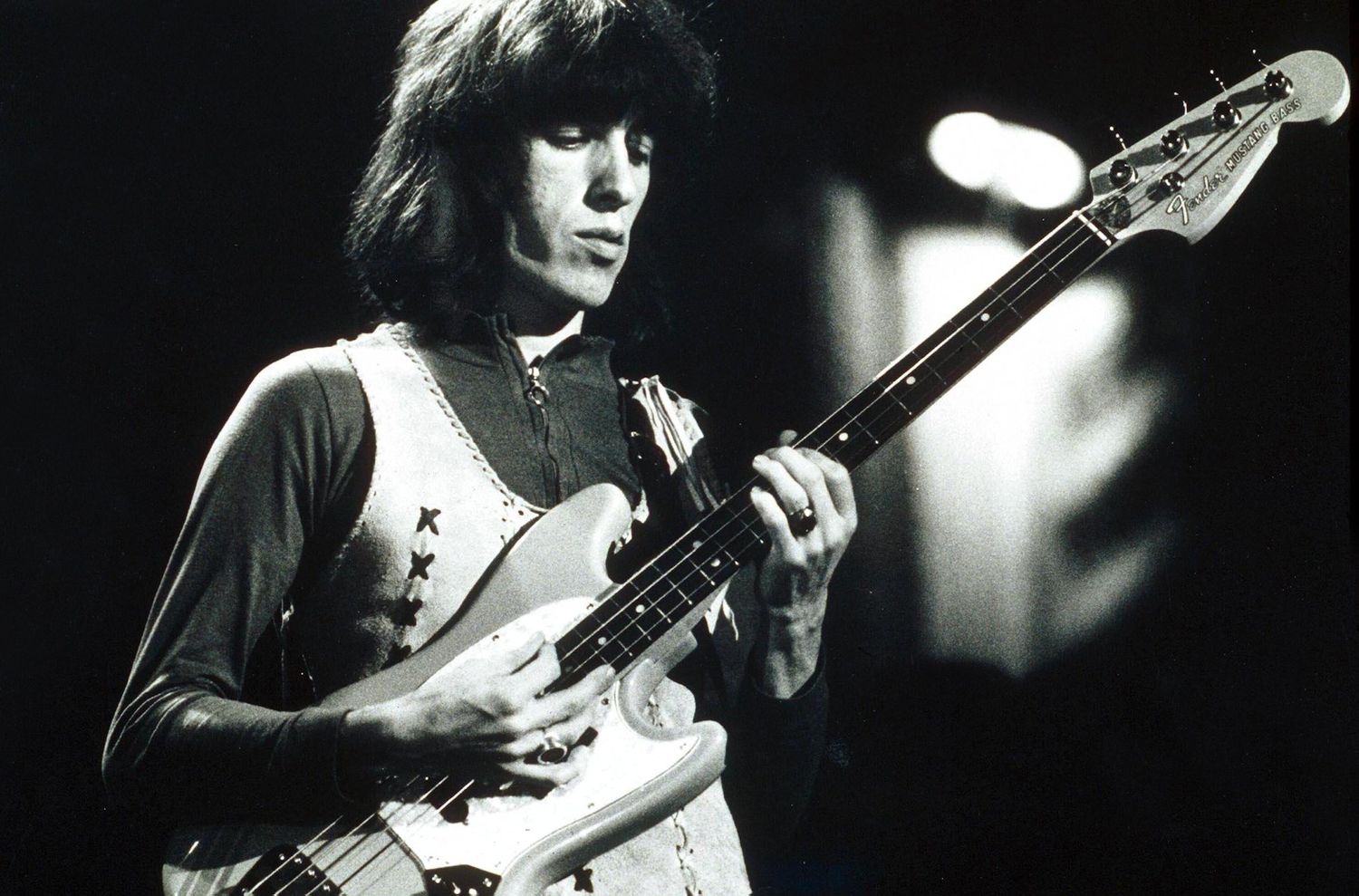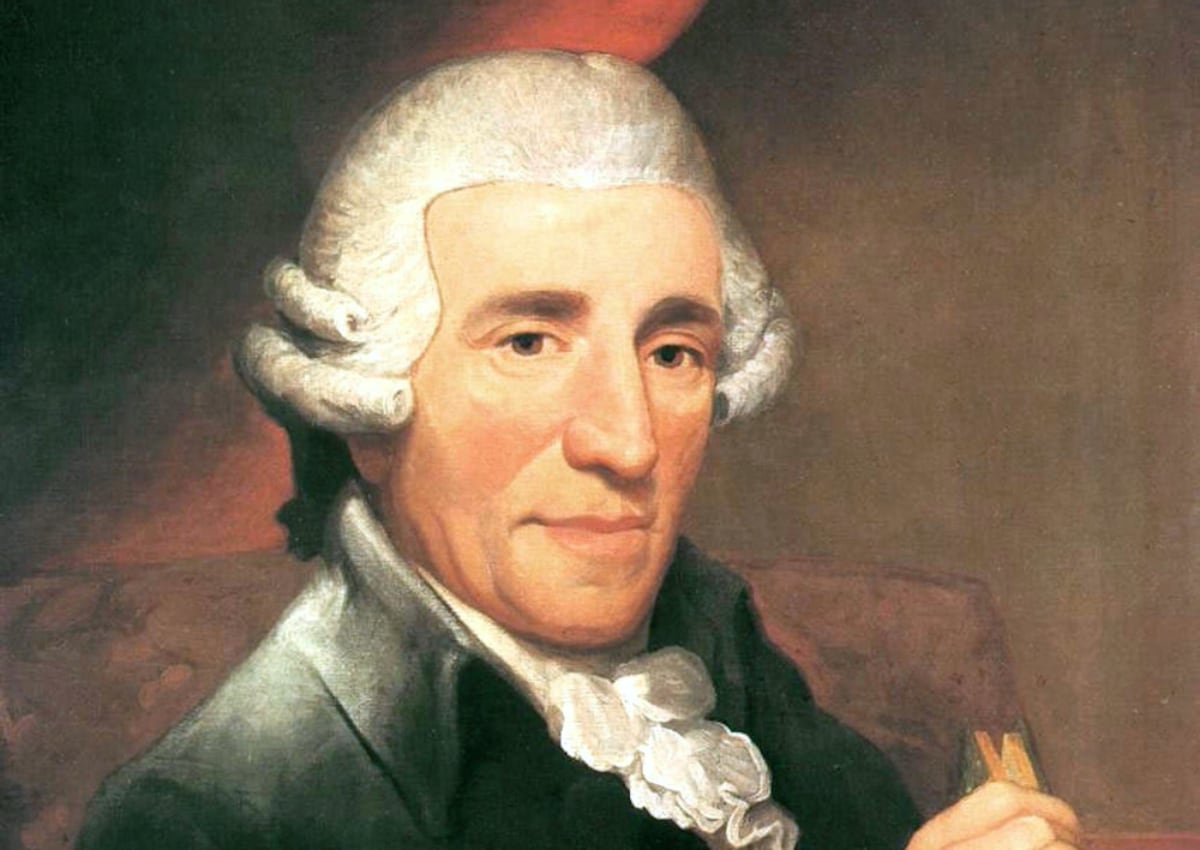Home>Events & Info>Music History>Retrospective Sexism: How Women Are Written Out Of British Indie Music History
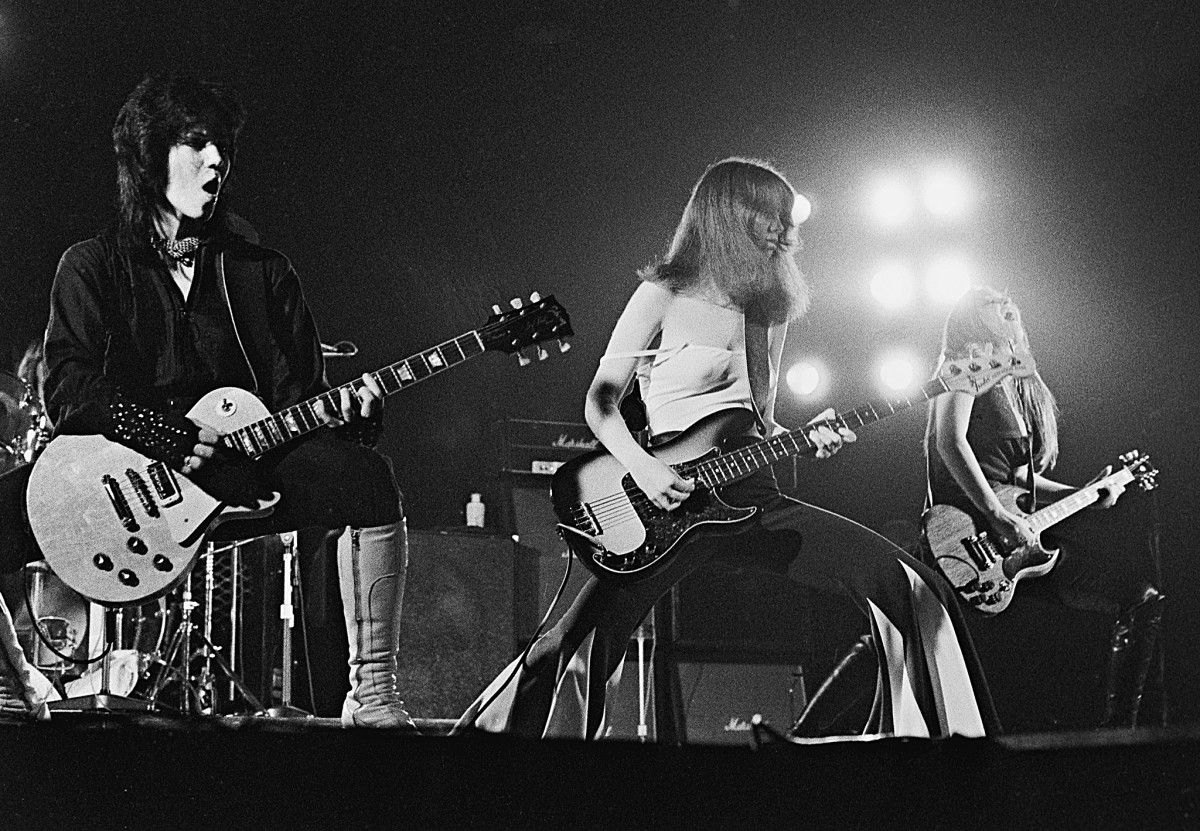

Music History
Retrospective Sexism: How Women Are Written Out Of British Indie Music History
Published: December 27, 2023
Discover the overlooked contributions of women in British indie music history. Explore the impact of retrospective sexism and its effects on music's narrative
(Many of the links in this article redirect to a specific reviewed product. Your purchase of these products through affiliate links helps to generate commission for AudioLover.com, at no extra cost. Learn more)
Table of Contents
- Introduction
- The Emergence of British Indie Music
- Women’s Contribution to British Indie Music
- Retrospective Sexism: Historical Erasure of Women in British Indie Music
- Key Female Figures in British Indie Music
- Challenges Faced by Women in the British Indie Music Scene
- Initiatives to Address Sexism and Promote Equality in British Indie Music
- Conclusion
Introduction
British Indie music has long been celebrated for its rich tapestry of bands and artists who have captivated audiences around the world. From the raw energy of punk to the introspective melodies of Britpop, the genre has produced iconic albums and memorable performances. However, behind the scenes, there has been a persistent issue: the erasure of women in the history of British Indie music.
This article examines the emergence of British Indie music, the significant contributions women have made to the genre, and the unfortunate trend of retrospective sexism that has led to the written erasure of these women from its history. While British Indie music has seen its fair share of groundbreaking female artists, their contributions have often been overshadowed or dismissed, leaving a notable gap in the narrative of the genre.
In order to address this issue, it is important to shed light on the key female figures who have shaped British Indie music, as well as the challenges they have faced in a predominantly male-dominated industry. Additionally, we will explore the initiatives that have been put in place to address sexism and promote equality within the British Indie music scene.
By recognizing and celebrating the achievements of women in British Indie music, we not only rectify the historical oversight, but also pave the way for a more inclusive and diverse future for the genre. It is time to give credit where credit is due and ensure that the stories of these talented women are no longer relegated to the margins of music history.
The Emergence of British Indie Music
In order to understand the erasure of women in British Indie music history, it is essential to delve into the roots of the genre and its rise to prominence. The term “indie” originally referred to independent record labels that emerged in the late 1970s and early 1980s as a response to the mainstream music industry.
British Indie music emerged as a rebellious and alternative form of expression, characterized by its DIY ethos and rejection of commercialism. It provided a platform for artists to release music outside of the major label system, allowing for a greater sense of artistic freedom and autonomy.
During the 1980s and 1990s, British Indie music experienced a surge in popularity, with the rise of subgenres such as post-punk, shoegaze, and Britpop. Bands like The Smiths, The Cure, and Blur became synonymous with the movement, crafting distinctive sounds and garnering a dedicated fanbase both in the UK and globally.
While the British Indie music scene was primarily dominated by male artists and bands, it is important to note that there were notable exceptions. Talented female musicians and bands emerged during this period, making significant contributions to the genre. However, their impact and influence often went unrecognized or downplayed in the larger narrative of British Indie music.
It is crucial to acknowledge the cultural and societal factors that contributed to the underrepresentation of women in the industry. Deep-rooted gender biases and entrenched stereotypes played a role in shaping the image of British Indie music as a predominantly male domain. These biases not only affected the recognition and opportunities afforded to women in the industry but also hindered their ability to have their voices heard and stories told.
Despite these challenges, the emergence of British Indie music represented a vital moment in music history. It provided a platform for artists to express themselves authentically and paved the way for a more diverse and inclusive music industry. However, it is essential to examine why the contributions of women in British Indie music have been overlooked, and to address the retrospective sexism that has perpetuated their erasure.
Women’s Contribution to British Indie Music
Although the contributions of women to British Indie music may have been overshadowed, there is no denying the immense talent and influence they have brought to the genre. Women have played a pivotal role in shaping the sound and direction of British Indie music, pushing boundaries and challenging expectations.
Throughout the history of British Indie music, female artists and bands have made significant contributions in various capacities. They have not only excelled as vocalists and instrumentalists but have also been involved in songwriting, production, and shaping the overall artistic vision of their music.
One notable example is Siouxsie Sioux, the lead vocalist of Siouxsie and the Banshees. Known for her distinctive style and powerful vocals, Sioux was a pioneer in the post-punk and gothic rock scene of the late 1970s and early 1980s. Her influence can be heard in the works of countless artists who followed in her footsteps.
Another trailblazer is PJ Harvey, whose intense and raw music has garnered critical acclaim and a devoted fanbase. Harvey’s genre-defying sound and fearless exploration of themes such as love, politics, and sexuality have solidified her status as one of the most important voices in British Indie music.
The influence of women in British Indie music extends beyond individual artists. Bands like Cocteau Twins, The Slits, and Elastica showcased the diverse talents of female musicians and left an indelible mark on the genre. These bands not only shattered glass ceilings but also added a unique perspective and sonic texture to the British Indie music landscape.
The contributions of women in British Indie music are not limited to the past. Today, we see a new generation of female artists emerging and making their voices heard. Artists like Wolf Alice, Little Simz, and Kate Tempest continue to push boundaries and challenge stereotypes, proving that women are an integral part of the ongoing evolution of British Indie music.
While the achievements and impact of these women should be celebrated, it is crucial to acknowledge that their contributions have often been downplayed or overlooked. The erasure of women in the history of British Indie music is a troubling trend that needs to be addressed and rectified.
By acknowledging and highlighting the immense contributions of women in British Indie music, we can challenge the prevalent narrative and inspire future generations of musicians. It is time to rewrite the history books and ensure that the stories and legacies of these remarkable women are given the recognition they deserve.
Retrospective Sexism: Historical Erasure of Women in British Indie Music
One of the most concerning aspects of British Indie music history is the retrospective sexism that has contributed to the erasure of women’s contributions. This sexism manifests in various ways, from biased media coverage to the marginalization of female artists in the larger narrative of the genre.
One of the primary issues is the skewed representation of women in music journalism. Historically, music journalism has been a male-dominated field, resulting in a biased perspective on the industry. Female artists often receive less coverage or are relegated to categories like “female-fronted bands” rather than being recognized for their individual musical talent and artistic vision.
This biased media coverage not only reinforces existing gender stereotypes but also contributes to the erasure of women in the historical record of British Indie music. The stories and achievements of female artists become obscured, making it difficult for future generations to fully comprehend the contributions of women to the genre.
Furthermore, the retrospective sexism in British Indie music history is evident in the lack of recognition and awards for female artists. Despite the tremendous talent and critical acclaim they receive, women often find themselves overlooked in industry accolades and major music awards. This perpetuates a cycle of invisibility and undermines the achievements of female artists.
Another key aspect of retrospective sexism is the erasure of women from important cultural milestones and movements within British Indie music. Women played a significant role in shaping the sound and direction of the genre, but their contributions are often overshadowed or attributed to male figures. This not only diminishes their impact but also perpetuates the false notion that women were passive participants in the development of British Indie music.
The erasure of women from British Indie music history is a disservice to both the artists and the audience. It denies the rich and diverse range of voices and experiences that have shaped the genre. It is crucial to confront and challenge this retrospective sexism in order to create a more accurate and inclusive narrative of British Indie music.
By recognizing and highlighting the achievements of women in British Indie music, we can rectify the historical oversight and pave the way for a more equitable future. It is time to cast a spotlight on the talented and influential women who have contributed to the genre and ensure that their stories are no longer marginalized or forgotten.
Key Female Figures in British Indie Music
Despite the erasure and marginalization of women in British Indie music history, there have been numerous talented and influential female figures who have made significant contributions to the genre. These women have shattered stereotypes, challenged conventions, and left an indelible mark on British Indie music.
Siouxsie Sioux, the iconic lead vocalist of Siouxsie and the Banshees, emerged as a trailblazer in the late 1970s. Her powerful vocals and distinctive style helped pave the way for the post-punk and gothic rock genres. Through her fearless artistry and boundary-pushing performances, Sioux became an inspiration to generations of artists.
PJ Harvey is another standout figure in British Indie music. With her raw and intense sound, Harvey has consistently pushed musical boundaries and defied expectations. Her albums such as “Rid of Me” and “To Bring You My Love” are considered seminal works and have garnered critical acclaim worldwide. Harvey’s ability to reinvent herself with each album and fearlessly explore different genres has solidified her status as one of the most influential and revered artists of her generation.
Elizabeth Fraser, the ethereal vocalist of Cocteau Twins, brought a unique and enchanting quality to British Indie music. Her angelic voice and emotive delivery captivated listeners, creating a sonic landscape that was both haunting and mesmerizing. Fraser’s contribution to the genre cannot be overstated, as she expanded the boundaries of what was possible with vocals and influenced countless artists with her distinctive style.
Kim Gordon, the bassist and vocalist of Sonic Youth, also deserves recognition for her immense impact on British Indie music. As a founding member of the band, Gordon brought a fresh and unconventional approach to the genre. Her fierce and unapologetic presence challenged gender norms and inspired a generation of female musicians to step into the spotlight.
In addition to these individual artists, there have been pivotal all-female bands in British Indie music. The Slits, an influential punk band formed in the late 1970s, broke barriers with their raw energy and feminist lyrics. Elastica, led by Justine Frischmann, blended catchy hooks and infectious melodies, becoming a prominent force in the Britpop movement of the 1990s.
These are just a few examples of the many incredible women who have shaped British Indie music. Their talents, innovations, and fearlessness have left an indelible mark on the genre and continue to inspire a new generation of musicians.
It is essential to celebrate and acknowledge the contributions of these key female figures in British Indie music. By shining a spotlight on their achievements, we challenge the historical erasure and create a more inclusive and accurate narrative of the genre. These women have proven that their voices and artistic visions are integral to the tapestry of British Indie music, and their legacy should not be diminished or overlooked.
Challenges Faced by Women in the British Indie Music Scene
Women in the British Indie music scene have faced a multitude of challenges throughout history. These challenges range from systemic biases and gender-based discrimination to unequal opportunities and the perpetuation of stereotypes. Understanding and addressing these obstacles is crucial in creating a more equitable and inclusive environment for female artists.
One of the primary challenges is the pervasive gender bias that exists within the industry. Women often face preconceived notions about their musical abilities, with their talent overshadowed by their gender. This bias can manifest in the form of prejudice from industry professionals, media gatekeepers, and even audiences, perpetuating the false belief that women are less capable or less deserving of recognition.
Another challenge is the lack of representation and visibility for women in the British Indie music scene. Female artists frequently struggle to secure equal opportunities for exposure, including festival slots, label signings, and support from the industry. This lack of representation further perpetuates the gender imbalance and makes it harder for women to gain traction and build successful careers.
The issue of unequal pay and financial disparities also plagues the British Indie music scene. Women often face a significant wage gap compared to their male counterparts, with lower fees for performances and less favorable record and publishing deals. These financial barriers can hinder women’s ability to invest in their art and pursue their musical aspirations on an equal playing field.
Sexual harassment and objectification are additional challenges that women in the British Indie music scene encounter. Female artists and industry professionals report instances of unwanted advances, inappropriate behavior, and instances of their worth being reduced to their physical appearance rather than their musical talent. These experiences can create an unsafe and hostile environment, inhibiting women’s ability to fully express themselves and thrive in the industry.
Motherhood and the balancing act between career and family life present unique challenges for women in the British Indie music scene. The demands of touring and the unpredictable nature of the music industry can make it difficult for female artists to juggle their artistic pursuits with the responsibilities of motherhood. Lack of support and understanding can further complicate their career trajectories.
While these challenges may seem daunting, it is important to acknowledge the progress that has been made and the efforts being made to address them. Initiatives such as female-led music festivals, organizations promoting gender equality, and increased awareness of these issues help to create a more inclusive and supportive environment for women in the British Indie music scene.
By shining a light on the challenges faced by women in the British Indie music scene, we can work towards dismantling these barriers and creating a more equal and empowering space for female artists to thrive and be celebrated for their talents.
Initiatives to Address Sexism and Promote Equality in British Indie Music
In recent years, there has been a growing recognition of the need to address sexism and promote equality within the British Indie music scene. Various initiatives have been launched to challenge systemic biases and create a more inclusive and diverse industry for artists of all genders.
One significant initiative is the rise of female-led music festivals. These events showcase and celebrate the talents of female artists, giving them a platform to perform and be recognized. Festivals such as Her Music PR’s The F-List Live, Loud Women Fest, and Cambridge Women in Music Festival have brought together a diverse lineup of talented musicians, challenging the historic underrepresentation of women in the festival circuit.
Organizations and collectives have also been instrumental in promoting equality within the British Indie music scene. The Keychange initiative, for instance, aims to achieve gender balance in music festival lineups by 2022. It encourages festivals to sign a pledge committing to a gender equality target and provides support and resources to help achieve this goal.
The PRS Foundation’s Women Make Music fund offers financial support to female artists and songwriters, enabling them to create and develop their music. This fund not only provides vital funding but also acknowledges the disparity in financial opportunities faced by women in the industry.
Additionally, there has been a greater emphasis on mentorship and education programs geared towards empowering women in the British Indie music scene. Organizations like Girls Rock London and Saffron Records provide workshops, coaching, and networking opportunities for aspiring female musicians, fostering a supportive environment and helping to bridge the gender gap in the industry.
The inclusion and recognition of women in music journalism have also surged, with platforms such as The Line of Best Fit, Girls Like Us, and She Shreds Magazine amplifying the voices and perspectives of female artists. By providing diverse and inclusive coverage, these outlets help to challenge the male-dominated discourse surrounding British Indie music.
Furthermore, social media platforms have played a significant role in dismantling barriers and amplifying the voices of underrepresented artists. Women in British Indie music are now able to connect with fans, share their music, and build supportive communities online, fostering inclusivity and visibility in the digital space.
These initiatives, along with many others, signify a collective effort to address sexism and promote equality in British Indie music. While progress has been made, there is still work to be done to ensure that diverse voices are fully represented and celebrated in the industry.
By continuing to support and uplift women in the British Indie music scene, we can create a more inclusive and equal environment where all musicians have the opportunity to thrive and contribute their unique talents to the genre.
Conclusion
The erasure of women in the history of British Indie music is a troubling trend that needs to be addressed and rectified. For far too long, the contributions of female artists in the genre have been overshadowed, marginalized, or simply omitted from the larger narrative. It is time to rewrite the narrative, challenge sexism, and create a more inclusive and accurate representation of British Indie music.
Throughout its history, women have made tremendous contributions to British Indie music. They have pushed boundaries, defied stereotypes, and shaped the sound and direction of the genre. From the iconic vocals of Siouxsie Sioux and PJ Harvey to the innovative styles of Cocteau Twins and Elastica, women have left an indelible mark on the scene.
However, these achievements have often been met with challenges and barriers. Sexism, biased media coverage, unequal opportunities, and systemic biases have hindered the visibility and recognition of women in the industry. The retrospective sexism that underlies the erasure of female artists from British Indie music history is a stark reminder of the ongoing gender disparities that persist in the music industry.
Nevertheless, there is hope and progress. Initiatives such as female-led music festivals, organizations promoting gender equality, mentorship programs, and increased representation in music journalism are encouraging positive change. These initiatives strive to create an inclusive and supportive environment where women can thrive and have equal opportunities in the British Indie music scene.
It is crucial to acknowledge and celebrate the contributions of women in British Indie music, past and present. By recognizing and amplifying their voices, we can rewrite the historical record and inspire future generations of musicians. It is time to give credit where credit is due and ensure that the stories and legacies of these remarkable women are no longer marginalized or forgotten.
As music lovers and industry professionals, it is our responsibility to challenge and dismantle the systemic biases and barriers that have perpetuated the erasure of women in British Indie music. Let us embrace diversity, promote equality, and create a vibrant and inclusive space where all artists, regardless of gender, can thrive and contribute their unique talents to the genre.


